One Year After the Oct. 7 Hamas Attack, Members of 3 Argentinian Families Are Still Held Hostage
The hostages all had ties to Kibbutz Nir Oz, a community with many Argentinian migrants, among them, a one-year-old boy who spent his first birthday in captivity.
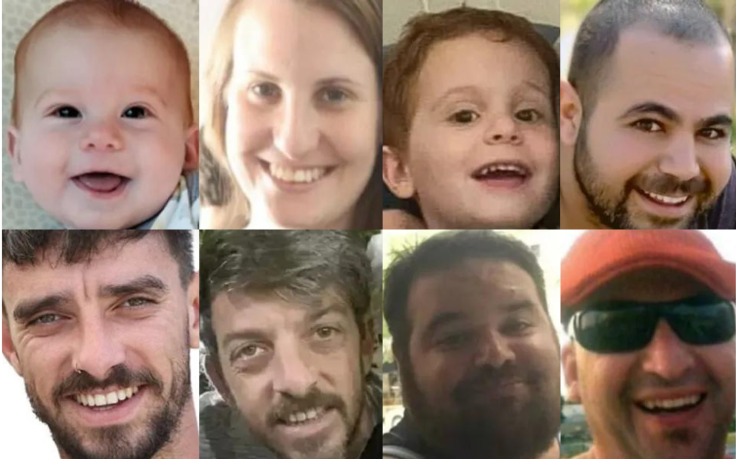
One year ago, an Argentinian-Israeli mother was filmed holding tightly to her two red-headed sons while being herded into a car by armed Hamas militants. The video circulated worldwide, sparking widespread anger and illustrating the horror of the Oct. 7 Hamas attack on Israel, which killed at least 1,400 people and saw around 250 taken captive in the Gaza Strip.
Today, approximately 101 Israeli citizens are still being held hostage by Hamas. According to Blue Ribbons, a U.S. grassroots initiative lobbying for the hostages, 64 hostages are presumed to be alive and 33 dead.
Among the presumed living hostages is Shiri Silberman Bibas, the woman in the video. She is one of eight Argentinian-Israeli citizens still being held in Gaza. Four Argentinian nationals were killed during the attack, and more than 20 were taken to Gaza as hostages.
Since then, 13 have been freed alive, eight are still believed to be in Gaza, and two have died in captivity, according to reports from family members and international media. The eight still being held represent three Argentinian families.
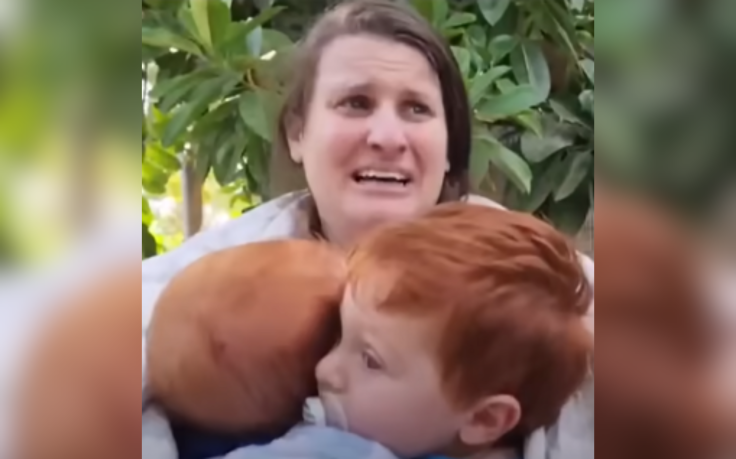
The Silberman Bibas Family
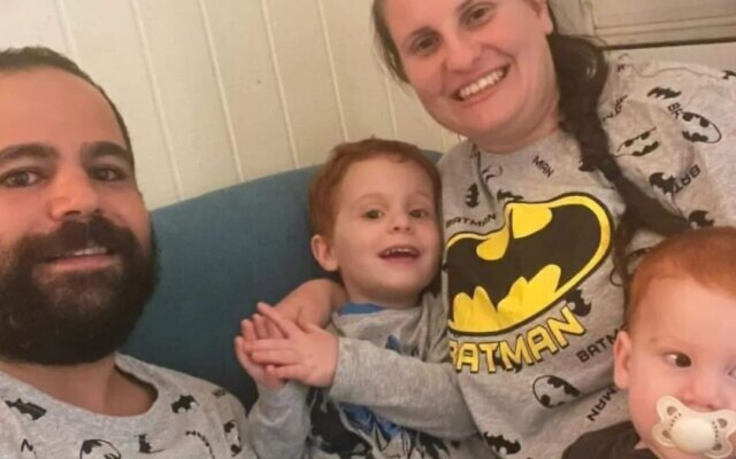
Hours before the attack, Shiri Silberman Bibas was at home with her family in Kibbutz Nir Oz. This small community is home to many Argentinian-Israeli families and was one of the hardest hit by the attack. According to the Hostage and Missing Families forum, 29 of the 101 remaining hostages are from Kibbutz Nir Oz.
Shiri's father, Yosef José Silberman, 67, was a proud Argentinian immigrant who helped cultivate the kibbutz's crops. He and his Peruvian wife, Margit Silberman, were captured and killed on the same day, Israeli authorities confirmed on Oct. 21.
Shiri's husband, Yarden Bibas, also an Argentinian-Israeli citizen, allegedly fought against the Hamas militants before he was captured and separated from Shiri and their two sons, Ariel, now 5, and Kfir, who turned 1 in January and is the youngest hostage.
Tomorrow, Monday August 5th, marks Ariel Bibas' 5th birthday. Instead of a celebration, for the past 303 days, Ariel has been held captive by Hamas, along with his father Yarden, mother Shiri, and younger brother Kfir, who was just 9 months old when kidnapped.
— Bring Them Home Now (@bringhomenow) August 4, 2024
The Bibas family… pic.twitter.com/gZqWVav2zK
In November 2023, Hamas released a video of Yarden, who was visibly shaken, claiming his family had been killed in an Israeli airstrike. The father begs for his family's bodies to be returned to Israel. Reacting to the video, the Israel Defense Forces said there was insufficient evidence to confirm the deaths and labeled the video "psychological terror."
In January 2024, Bibas Silberman's extended family celebrated Kfir's first birthday, calling it the "saddest birthday in the world." If alive, Kfir has spent most of his life as a hostage.
The Cunio Family
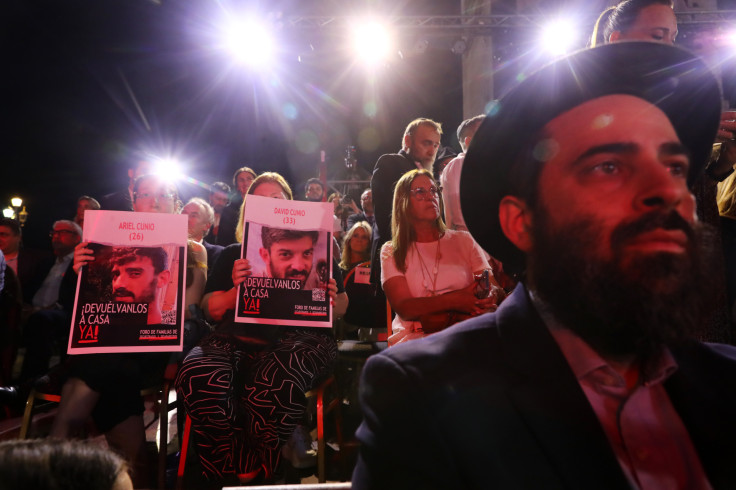
Also, from Kibbutz Nir Oz, several members of the Cunio family were taken by Hamas, except for 90-year-old Esther Cunio. In an attempt to communicate with her captors, she told them she was "from where Messi is from." Esther told media outlets that the name-dropping saved her from being taken.
Hamas later released a photo of Esther posing with a Hamas militant holding an assault rifle. The photo went viral, and Esther used the attention to make a public plea to Messi, asking him to help get her two grandsons out of Gaza.
WATCH: An Israeli grandma credits Messi for her survival on Oct 7. “I’m from where Messi is from,” 90-year-old Esther Cunio told two masked Palestinian gunmen who moments earlier invaded her home in southern Israel. https://t.co/h81Pzhy4FM pic.twitter.com/J1TwZ8JuhE
— CNA TODAY (@TODAYonline) March 23, 2024
Her grandsons, David, 33, and Ariel, 26, are still being held captive. The Cunio brothers were taken along with David's wife, Sharon Aloni Cunio, and their 3-year-old twin daughters, Yuli and Emma, who were later released during a November truce in exchange for Palestinian prisoners. "We stayed there crying, and I begged him not to leave," Sharon said in a Tel Aviv rally, recalling the day of her release.
Ariel, who had recently returned from a trip to Central and South America and adopted a puppy, was visiting his brother in Israel when he was kidnapped. His girlfriend, Arbel Yehud, and her brother were also taken and remain in captivity.
Silvia Cunio’s eyes say it all.
— Bring Them Home Now (@bringhomenow) January 31, 2024
Hamas is holding both her sons, Ariel and David, in captivity in Gaza. Look her in the eyes.
We must bring the Cunio brothers home. Now!#BringThemHomeNow pic.twitter.com/YCfsXTdGNr
In an interview with YNet News, Silvia Cunio, the mother of the kidnapped brothers, said her granddaughters ask for David every day. "They ask, 'When is Dad coming back? When are the bad guys releasing him?'" Silvia said. "I keep thinking about what conditions they're in. I hardly sleep. Every bite I eat brings guilt because I don't know if they're eating."
The Horn Family
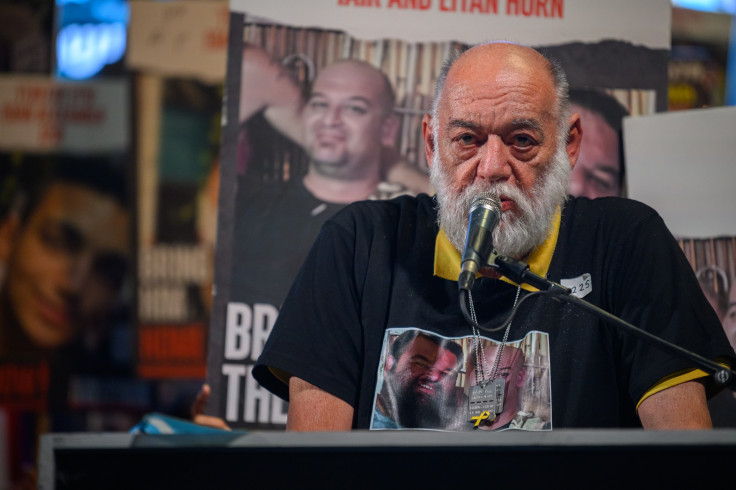
Eitan, 37, and Yair Horn, 45, were taken from Yair's home in Kibbutz Nir Oz. Eitan, Yair's younger brother, lived in a different community with their parents and was visiting his brother that day.
The Horn family moved to Israel from Argentina shortly after the 1994 bombing of the Jewish Center in Buenos Aires, which killed 85 people. Yitskhok Horn, the brothers' father, survived the bombing and recalled, "After that, I thought, what else could happen?"
Eitan Horn, argentino secuestrado por la organización terrorista Hamas, hoy cumple 38 años.
— Israel en Argentina (@IsraelArgentina) September 23, 2024
En lugar de festejar con sus seres queridos, desde hace 353 días se encuentra cautivo en Gaza junto a su hermano, Iair, y otras 100 personas.
Su familia los está esperando en Argentina… pic.twitter.com/nBqw8alfqY
On Oct. 7, Yitskhok and his wife, Ruth Strum, were in contact with their sons, unaware of the magnitude of the attack until their silence raised concern. They traveled to Kibbutz Nir Oz to search for them. "We looked in hospitals, among the dead, with the police," Yitskhok said. Three weeks later, they learned their sons were in Gaza.
"When the first captives were freed, we were told they weren't injured," Yitskhok said. "But that's old news. Everyone's sick by now." He fears his sons, like other captives, lack food, water, medicine, and sunlight. "Time is against them. We must free them now."
Despite the ordeal, their mother remains hopeful. In an interview with the Jerusalem Post, Ruth Strum said she believed Eitan and Yair would return and that she would greet them with fresh empanadas.
Families Unite for Peace: 'Bring Them Home'
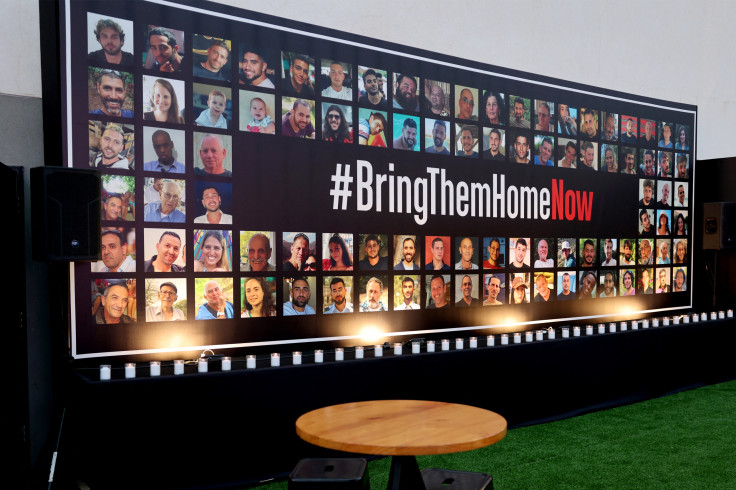
At a rally in Carmei Gat, where the Kibbutz Nir Oz community is temporarily residing, survivor Liat Atzili Benin spoke. "We are on the eve of the end of a terrible year," said Benin, who was held captive for 54 days after her husband was killed in the attack.
"I wish that next year, I will sit on the porch of my new home in Nir Oz, watching migrating birds," she said. "Everyone will be there. The guests of honor will be the hostages who were returned."
"There is one thing our community agrees on without dispute. We all know, from young to old, that our most urgent mission is an uncompromising struggle to return the remaining 101 hostages in the Gaza Strip, 29 of whom are from Nir Oz."
— Bring Them Home Now (@bringhomenow) October 5, 2024
Hamas captivity survivor Liat Atzili Benin… pic.twitter.com/ZIzTuMv3Ve
Since the attack, family members of the hostages have mobilized to demand international support. The Horn, Cunio, and Silberman-Bibas families have worked with the Hostages and Missing Families Forum to organize protests worldwide. From Buenos Aires to Tel Aviv, their cause has gained the support of thousands of Israeli and international citizens.
According to the forum, 29 of the 101 remaining hostages are from Kibbutz Nir Oz, a community with strong ties to Argentina. The South American country has one of the largest Jewish populations in the world, and many Argentinian Jews migrated to Israel after the 1994 bombing and a series of economic crises.
An Ongoing Conflict
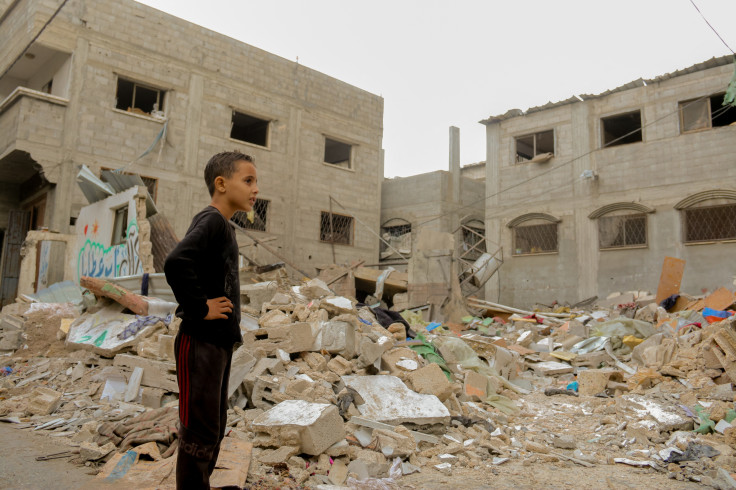
In a September United Nations Security Council meeting, diplomats denounced the recent assassination of six Israeli hostages, calling for a ceasefire and the release of the remaining hostages amid escalating violence.
Since Oct. 7, more than 41,000 Palestinians have been killed. Most Gaza residents report living in inadequate conditions, many lacking essential resources such as water, food, electricity, and medical supplies.
An Israeli human rights advocate who attended the meeting criticized the Israeli government for prioritizing war over the return of hostages. She accused the government of exploiting the collective trauma of Oct. 7 to further its political objectives in Gaza.
In response, the Israeli representative said the country's top priority is the return of hostages and condemned Hamas, asking the international community to designate the group as a terrorist organization. "It is Hamas that stands in the way of this," he said, adding that Israel agreed to previous ceasefire deals. Yet, the international community continues to pressure Israel "as if we are the ones holding hostages."
However, the observer for the State of Palestine said Israel is "seeking to impose a military solution to the conflict by disappearing a nation." He also accused Israel of destroying refugee camps and civilian infrastructure with airstrikes. Ahead of a General Assembly vote on a resolution demanding the end of occupation within a time frame, he urged member states to remember the victims when making their decision.
The meeting concluded with widespread calls for peace but no tangible solutions or agreements for a ceasefire or the release of the remaining hostages.
Meanwhile, the families of Kibbutz Nir Oz continue to ask the international community to remember the hostages. "I want them here with me now, at home—there's not a day that passes when I don't cry," Silvia Cunio said at a recent rally. "The deal is there. It's attainable. Please, our mother hearts can't take this anymore."
© Latin Times. All rights reserved. Do not reproduce without permission.





















